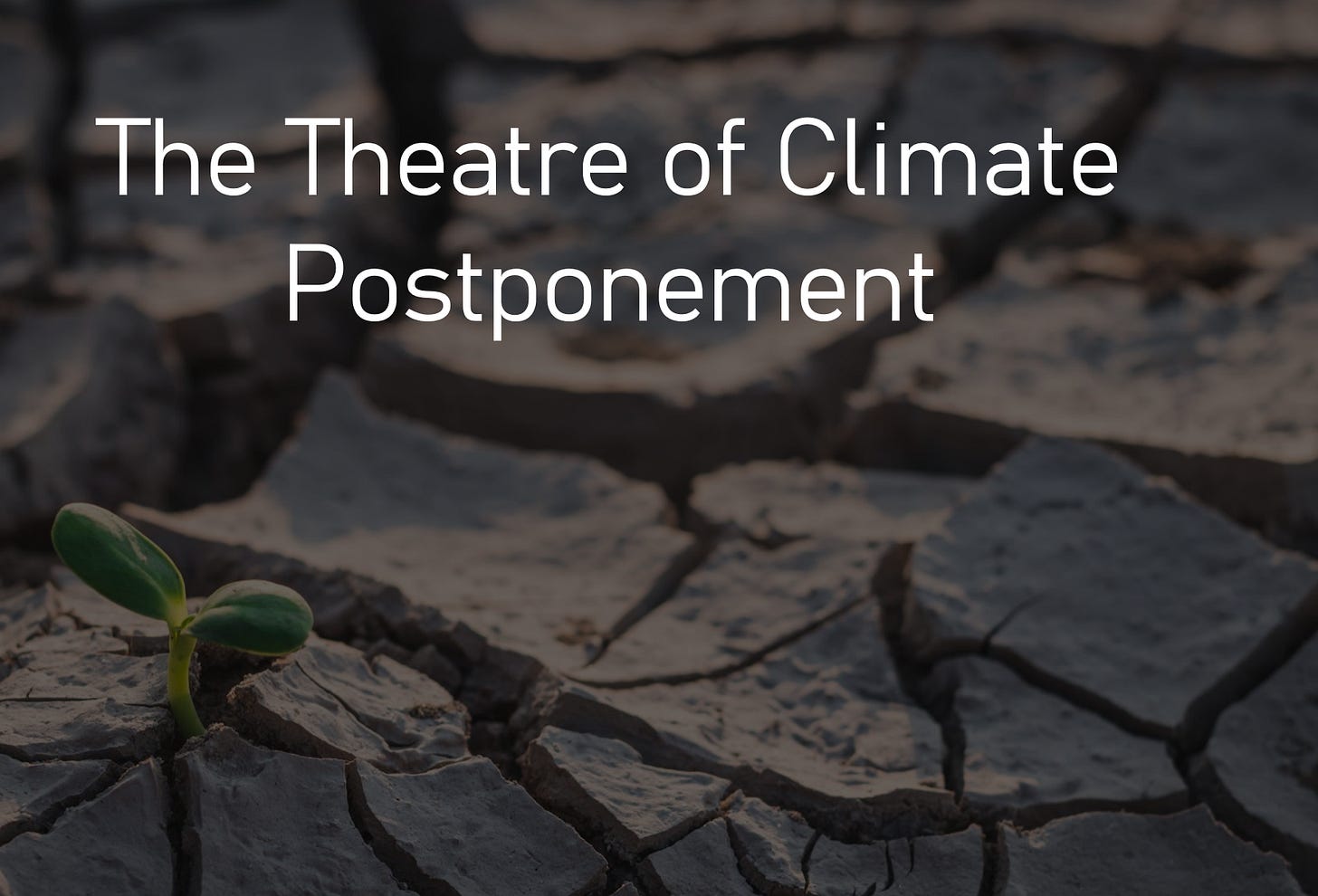Welcome to another gripping episode of The Great Climate Delay—where world leaders gather not to save the planet, but to schedule when they might think about it.
The latest performance took place in Hangzhou, China, during the Intergovernmental Panel on Climate Change (IPCC) meeting. Notably absent? The United States, following Donald Trump’s decision to halt U.S. scientists' participation. h the United States was notably absent, after Donald Trump halted the participation of U.S. scientists. What unfolded during a week of talks and debates was a now-familiar paradox —the simultaneous acknowledgement and denial of the climate change emergency.
The week culminated in a 30-hour session meeting - extending human endurance to its limits while resolving almost nothing. It was a perfect metaphor for our response to climate change: exhaustive discussions yielding minimal action.
Not all of them. European nations, Japan, most developing countries and small island states – the latter inconveniently sinking beneath rising seas, to continue to insist—rather dramatically, one might say—that time is running out— pushed for completing the scientific review by 2028, aligning with the Paris Agreement’s Global Stocktake. Meanwhile, China, Saudi Arabia, and India played their usual roles as masters of delay, ensuring that a planetary urgency remains trapped in bureaucratic inertia.
What makes these meetings particularly fascinating is how they transform the climate crisis into a drawn-out administrative process The IPCC reports— should be triggers for immediate action. Instead, they become agenda items, endlessly debated, and, ultimately, postponed.
Of course, why rush? It's not like the planet is on fire, sea levels are rising, and ecosystems are collapsing in real-time. No, much better to delay until 2028—because clearly, climate change is politely waiting for the world’s leaders’ political and economic priorities to catch up.
The true achievement of the Hangzhou meeting may be this: it has demonstrated once again our remarkable ability to acknowledge a catastrophe while simultaneously ensuring we need not inconvenience ourselves to prevent it.
This article is free to read, but if you found it useful, please consider subscribing or making a small donation at my Buy Me A Coffee page below. The Climate Historian is an independent publication, entirely supported by readers like you.
Notes:
US officials have been absent from global climate forums during Trump 2.0 | Trump administration | The Guardian
Nations fail to break deadlock on UN climate report timing | Le Monde




